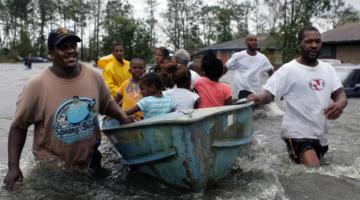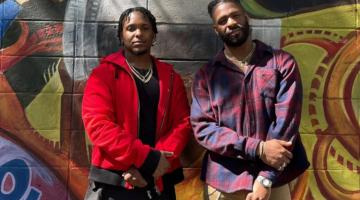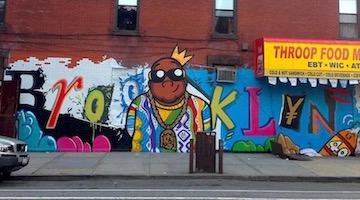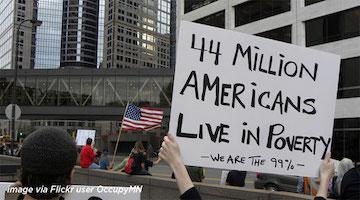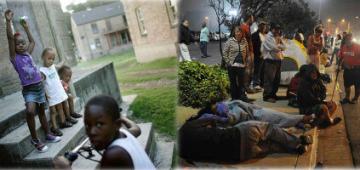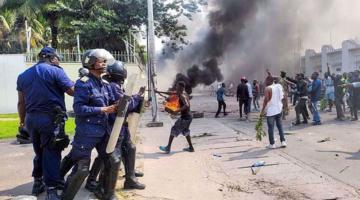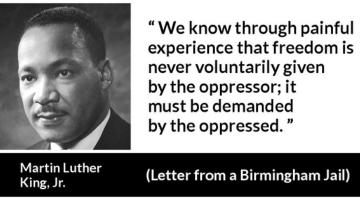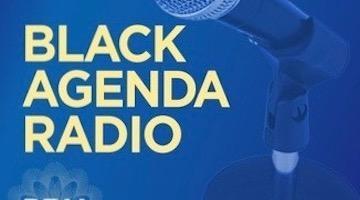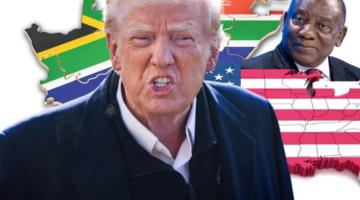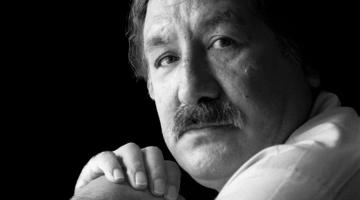With no well-financed publicity department and no links to the machinery of big party politics, movements like PPEHRC can sometimes seem lost in plain sight.
“Taking up collections to cover funeral costs has become as integral to the fabric of poor people’s organizing as growing and distributing food.”
We are in a tumultuous moment, between COVID, and the renewed surge of popular politics, in response to police murder of African Americans and other deep manifestations of racism. It is likewise a moment pregnant with possibility, as protestors demand change and seek to create it themselves, and as politicians and others seem at least momentarily to find it in their interests to pay close attention to these demands. On 6 July, BAR broadcast a piece on the timeline of Black Lives Matter’s activities, emphasizing that the movement did not somehow die out in 2014, only to be suddenly, spontaneously, and randomly resurrected with the murders of Breonna Taylor and George Floyd. Rather, its members have been working continuously throughout these last years, making possible the enormous demonstrations we are now seeing—and being there too when the camera looked away. This is how successful activism most often works, even if such ongoing action frequently escapes media attention. So it has been too with the Poor People’s Economic Human Rights Campaign (PPEHRC).
PPEHRC, constituted by poor people organizing themselves, has been once again highly visible, in rising up against the radically increased precarity that COVID has visited on vast populations. This crisis is all the more visible in Philadelphia, which already held the dubious honor of being the poorest big city in America, in real terms nearly half the population. How should oppressed peoples respond to a crisis that devastates their communities more than any other? With so many newly impoverished people—and as those who were already poor suffer far more still—PPEHRC has expanded its broad networks of mutual aid: distributing food to the homebound, sharing supplies with thousands of others, and fighting evictions; sharing knowledge with the newly poor (overwhelmingly people of color) and bringing new populations into the fight against the structures that perpetuate and exacerbate the country’s vast inequalities. PPEHRC members argue that capitalism and a government and electoral system controlled by the rich is the larger illness. The cure requires not just a free vaccine, but dismantling a system that threatens poor people's lives every day.
“PPEHRC brings new populations into the fight against the country’s vast inequalities.”
Emerging out of the Kensington Welfare Rights Union and drawing together scores of other groups, PPEHRC, with branches across the nation and beyond, has regularly made headlines. These run from its inaugural 1997 March for Our Lives from the Liberty Bell to the United Nations and its 1999 international March of the Americas; to the 2006 National Truth Commission, modelling what is being demanded in 2020, and sponsorship of the 2013 World Court of Women on Poverty; to its upcoming #LivesOverLuxury teach-in and protests at the Republican and Democratic presidential nominating conventions, as it has done outside both corporate parties’conventions since its inception. Members believe it is action over the long haul that makes the difference. PPEHRC looks back as well as forward, beyond its own, direct history, learning from and forging the connection to, for example, the 1968 Resurrection City and Poor People’s March on Washington; compare PPEHRC’s 50th anniversary 2018 March for Our Lives. Members thus claim the historical lesson of the need for poor people to organize themselves, and of the necessity of constant disruption through nonviolent civil disobedience that refuses cooptation by corporate support and the two corporate parties. Moreover, these efforts to bring attention via protest should not occlude the day-to-day work, across years and decades, as poor people seek to move forward with their own alternatives. PPEHRC has established numerous Tent Cities of the homeless and carried out innumerable housing occupations. These acts offer a sharp reminder that more still than the number of homeless in Philadelphia is the number of vacant properties left to deteriorate and destroy poor neighborhoods. PPEHRC is also about literally moving the homeless into homes. Members have been there at the flash points—creating flash points—and also all the time in between.
“PPEHRC is also about literally moving the homeless into homes.”
But such “looking back,” and seeing all the “time in between,” is not always easy. The ongoing presence of such work can be hard to detect sometimes, even within the wider direct community, even in an era of social media, for organizations that precisely do not have claims to societal power structures. PPEHRC has always welcomed outside support—but learned quickly to reject “support” of a type that seeks to take over, dominate, “lead” in a direction poor people do not want to take themselves; or that wishes to stamp the movement with the mark of corporate or foundation interests, and take control of the message as well as the people within. This is a valuable lesson from PPEHRC’s experience. It is also a stance that can prevent media attention: with no well-financed publicity department, and no links to the machinery of big party politics, movements like PPEHRC can sometimes seem lost in plain sight. Some of PPEHRC’s work also flies under the radar intentionally, for the security of individuals involved, who are, unsurprisingly, regularly threatened for their actions. The lack of attention can be demoralizing for activists. But sticking it out is key: staying organized, being ready at the moments when all the ongoing work contributes to moments when broad populations are suddenly ready to hear, when radical change is possible. And then sticking it out more, as the example of PPEHRC has demonstrated for decades: the job is never done, there is always more change that needs to happen. Activists can and need to remain directly involved in making the change, and on their own behalf.
As each day passes, more people are being thrown into crisis. Taking up collections to cover funeral costs has become as integral to the fabric of poor people’s organizing as growing and distributing food, making sure people are housed, ensuring the right to clean water, food, shelter, health care, physical and environmental safety—and to be heard. The COVID crisis will eventually be addressed by a vaccine. But the illness is much deeper and more systemic, and takes both intense and sustained action from below to address.
Belinda Davis, Professor of History at Rutgers University, writes on social movements and how they produce change
COMMENTS?
Please join the conversation on Black Agenda Report's Facebook page at http://facebook.com/blackagendareport
Or, you can comment by emailing us at comments@blackagendareport.com

